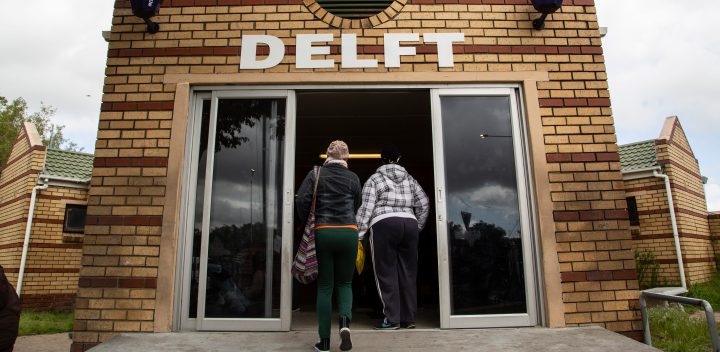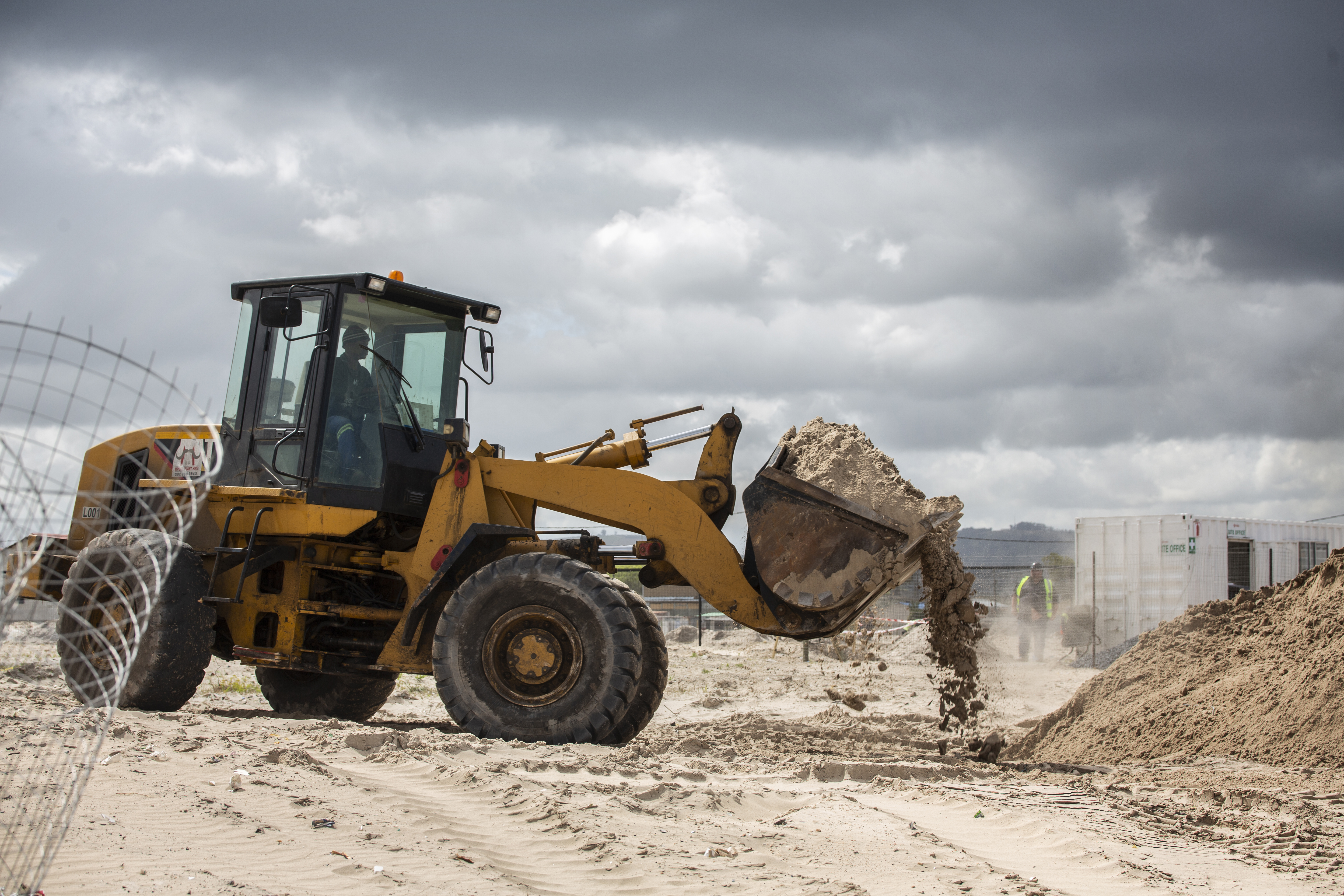Special Focus
Delft: Poor policing and fragmented planning fuel high crime rate

Once again, Delft on the Cape Flats featured in the SAPS top 10 lists for murder, assault and attempted murder. An unequal distribution of police resources and an increase in population are among a multitude of factors that contribute to the area’s consistent high crime rate.
Delft, a sprawling suburb on the Cape Flats, sits about 30km outside the city centre and was established in 1989 as one of the first desegregated townships for those classified as black and coloured. But lately, Delft is in the news for gang violence, murder and mob justice.
According to the latest crime statistics released in September, 195 murders were reported to the Delft Police station, making it the fifth highest area for murder nationally and third highest in the Western Cape.
The area also ranked in the top 10 for sexual offences (236), attempted murder (192) and drug-related crimes (3,765).
But despite the high crime rate, data from the Social Justice Coalition (SJC) indicates that there are 168 police officers per 100 000 people in Delft. By comparison an area like Rondebosch – which recorded 13 sexual offences and 0 murders in the same reporting period – but had 556 police officers per 100,000 people.
The Delft police station was originally responsible for policing in The Hague, Roosendaal, Leiden, Voorbrug, Eindhoven and Suburban. In recent years, its jurisdiction has expanded to include new sub-areas called Blikkiesdorp, Tsunami and the yet unnamed areas of 22, 23 and 24.
Blikkiesdorp has in recent months made headlines for incidents of mob justice. Early in September, reports emerged of mobs accompanying women around the settlement after a woman was allegedly raped in front of her child. Following this incident, one man was stoned to death in the area – allegedly as a result of mob justice.
According to Census 2011 data, in ward 106 – which covers the sub areas of Blikkiesdorp, Leiden, Suburban and Tsunami – there are 55,100 people living in a 3.3km² area.
There has been a steady increase in the building of houses in the Delft area by the city of Cape Town thanks to additional grant funding from national government.

Social housing in Delft, just outside Cape Town, 26 September 2018. Photo: Leila Dougan
The city’s housing project for Delft consists of three phases, according to Brett Herron, the city’s mayco member for Transport and Urban Development.
“Thus far, 288 Breaking New Ground (BNG) units have been built as part of the Roosendal project, which was completed in August 2016. Currently, Delft The Hague Phase 1 project, comprising 1 012 units, as well as Delft The Hague Phase 2 and Eindhoven projects, comprising 1,100 units, are under way,” said Herron, in response to questions sent by Daily Maverick.
However, according to Herron, policing and police stations are a national government responsibility and not that of local government.
Speaking to Daily Maverick Ward 106 councillor, Xolani Ndongeni, said the area needed another police station, and the current station should be expanded. Police resources were “far from being enough”, which was “stressful to the policemen and policewomen as well as the Delft community”.
Ndongeni has been a councillor in the area since 2011 and has watched as the numbers of people living in the area has increased making effective policing extremely difficult.
But Farida Ryklief, who has been living in Delft for the past 25 years and serves as secretary of the Delft Community Policing Forum, felt that the current police station was centrally situated, and that there was no need for another station.
Ryklief said the area’s problems with crime was much more nuanced and would not be fixed by simply building another station or adding resources. She said the re-establishment of sectoral policing and monitoring would, however, make a bigger difference.
Regular police patrols within different sectors of Delft were essential but were not taking place. “You never see them patrol,” said Ryklief, who accused the Delft SAPS of not being visible, or “having lunch when they are supposed to be on duty”.
Ryklief said criminals were robbing people and “they come and hide here”

Construction of social housing taking place in Delft, just outside Cape Town, 26 September 2018. Photo: Leila Dougan
As people are moving within Delft- moving from settlements such as Blikkiesdorp and into housing units in The Hague and Roosendaal- criminals, according to Ryklief, have been committing crimes in other parts of Delft, and started hiding from police in older, quieter parts of Delft such as The Hague and Roosendaal.
But is there a link between an influx of people moving into an area and a higher crime rate?
Andrew Faull from ISS Africa said there’s no proven relationship between migration patterns into an area and a higher crime rate, but rather “ in the South African context, we know that violent crime is very localised in particular areas, including Delft. As such, it makes sense to focus police resources (as well as other government resources) in these areas.”
“And yes, if population size increases rapidly in an already violent area, it is likely that more resources should be added where possible,” said Faull.
“An increase in population in an already unstable, disorderly or violent area should be responded to. With so much violence and crime in such a localised area, (the) government should ideally roll out a suite of complementary interventions based on sound evidence, supported by a shared vision, and coordinated across stakeholders,” he said.
Dalli Weyers, co-head of programmes at the SJC, argued that if police wanted to know where crime takes place, they should be looking at, for example, what happens when there is a rapid increase in a precinct’s population.
Weyers made the example of how crime increased in the Phillipi East precinct after residents moved into the Marikana informal settlement:
“The marked increase in the number of murders in this precinct clearly illustrate the need for police resources to be responsive to the movement of people. If police want to be were crime happens they should be using this data, along with crime-intelligence, to make informed allocations/reallocations as needed,” said Weyers.
“Given SAPS’s current system for the allocation of resources the movement of people into a new area has a marked negative impact on the police’s ability to effectively monitor the area. This is because SAPS is unresponsive to these movements,” said Weyers.
When Daily Maverick visited the Delft police Station on 26 September, there were two officers assisting residents who waiting in a long queue.
Asked about the possibility of another station or additional staff for the station, police minister Bheki Cele’s spokesperson, Reneilwe Serero said the following:
“As you will be aware the shortage of personnel is not only a Western Cape or Delft Police Station issue. It is a national challenge which was recently ventilated in Parliament and a pronouncement was made by the Minister of Police and National Commissioner that SAPS has a shortage of about 62,000 police officers. A business case has been made to National Treasury in this regard to request funding to increase the recruitment of new police officers.
“The Western Cape was allocated 1,070 posts for the recruitment of police officers for the 2018/2019 financial year and vacancies at prioritised high crime stations will be addressed with this allocation. SAPS will also be embarking shortly upon a process to re-enlist former police officers as well.”
Responding to queries from Daily Maverick about policing in Delft, SAPS provincial spokesperson Captain FC van Wyk said that factors hampering efforts included overcrowding, poor lighting and “no street cameras to assist investigations.”
Van Wyk said that Delft Station commander Brigadier Phindiwe Ntungele had indicated that new housing developments and growth in the area were putting a strain on policing efforts to make Delft safer.
Van Wyk told Daily Maverick that Brigadier Ntungele, during an oversight visit to the station by DA MP Zakhele Mbhele in September, expressed the desire for SAPS to be involved in planning meetings at the start of housing developments as “they impact on SAPS resources.” DM

















 Become an Insider
Become an Insider